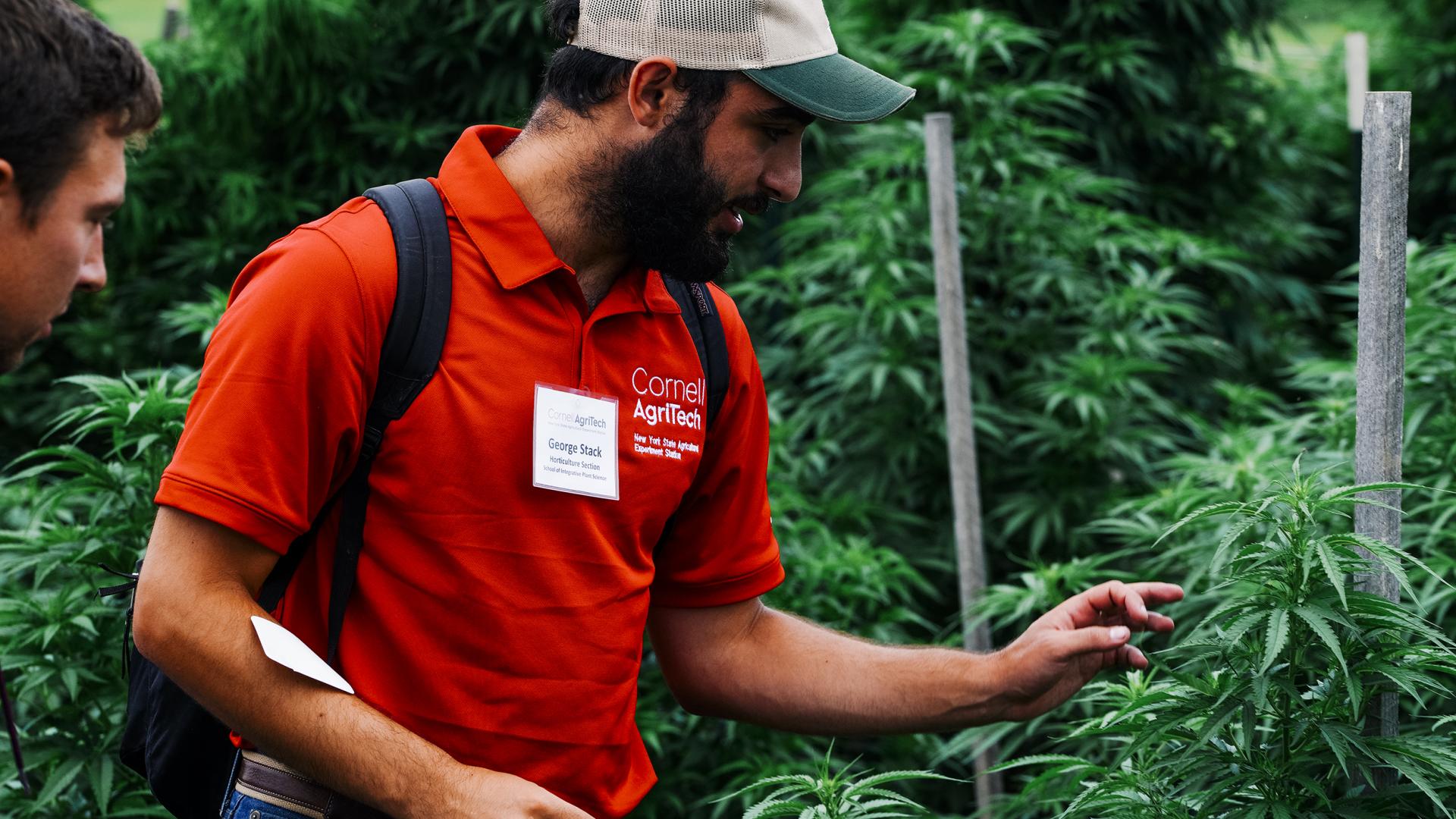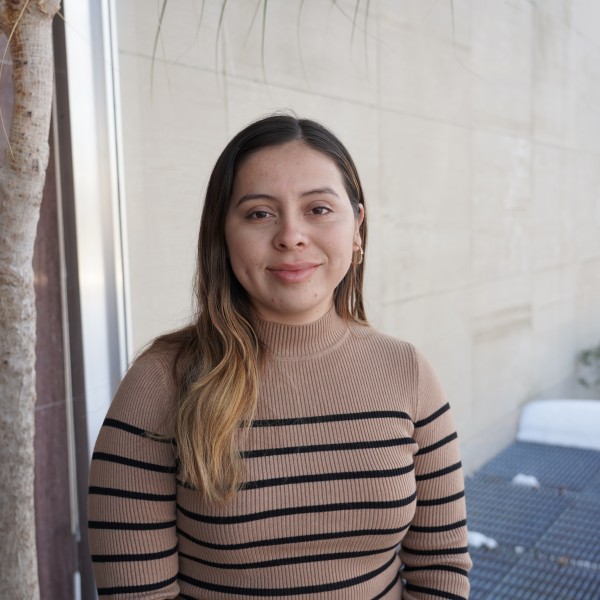What drew you to the program at Cornell AgriTech?
I first came to visit Cornell AgriTech for a field trip during my undergrad, and then I spent the summer here in 2018 as part of the Summer Scholars program. Both of those experiences made it clear to me that AgriTech is a really unique and exciting place to work. The focus on applied research and cross-discipline collaboration really stood out to me. Everyone is trying to work together to help growers in New York, and it is really effective because all of the disciplines bring specialized toolsets to help tackle problems.
What is the focus of your research?
My research focuses on how hemp interacts with biotic factors in the surrounding environment and how genetics mediate those interactions. Specifically, I'm studying what makes hemp plants more or less resistant to insect herbivores and/or pathogens. I’m also looking at what traits might shape the beneficial microbial communities found on hemp. The diverse and biologically active secondary metabolites it produces, namely cannabinoids and terpenes, make hemp a really interesting system for examining these interactions. I'm excited to see how those compounds might play into biotic interactions.
What excites you most about hemp research?
The most exciting thing to me about hemp research is that it gets other people excited. During our field day this year, we had almost 250 people show up—all eager to learn as much as they could. There is so much to learn about hemp, and it is really exciting to share new knowledge with people. I also find it rewarding to use hemp as a platform to talk about plants and agriculture in general. Legal hemp is new and intriguing and that curiosity can translate into people learning more about farming and where their food comes from.
What do you love most about performing your research at Cornell AgriTech?
I love how easy it is to communicate with the community on the Geneva campus. Anytime I have a question or want to talk about an idea, there is someone willing to talk to me about it. I've only been a student here for six months, but it is already clear that the people at AgriTech are the most valuable resource I could have as a graduate student. Everyone is extremely supportive and excited to collaborate, and to me, that feels like a great environment for productive research.
In what ways do you hope your research will help grow the NYS hemp industry?
Our lab is focused on developing new varieties of hemp that are well-suited to grow in New York. I'm looking forward to the progress we’ll make toward that goal during my time as a graduate student—and maybe even see the release of the first hemp cultivar developed by Cornell. Between now and then, I hope our research can help New York state growers find the best available varieties and guide them through growing practices that can help optimize their productivity.





